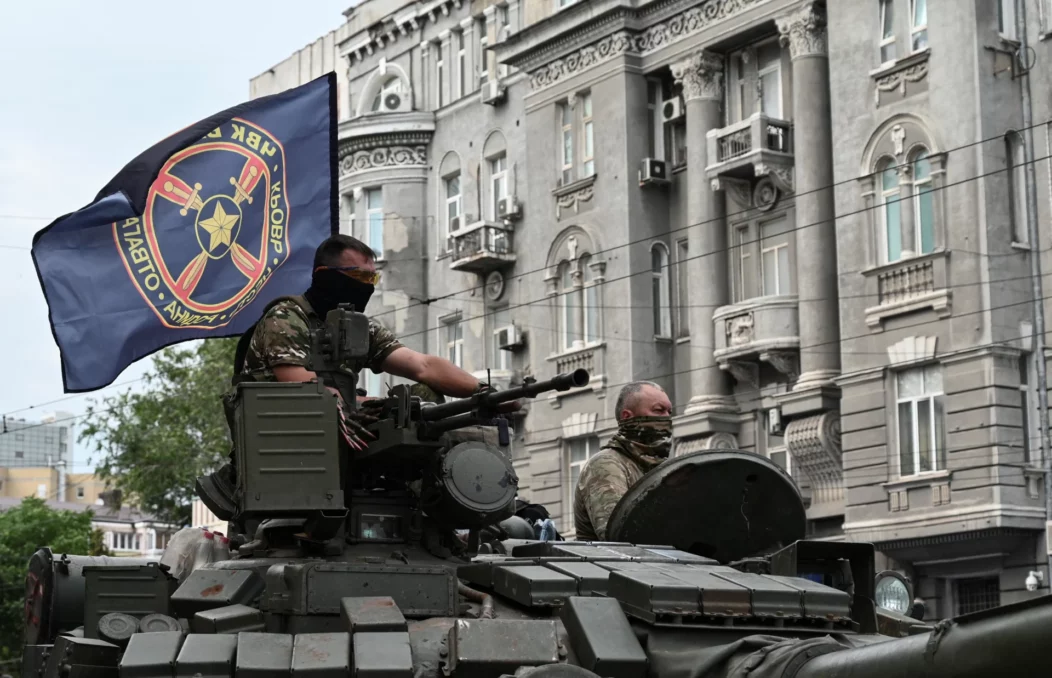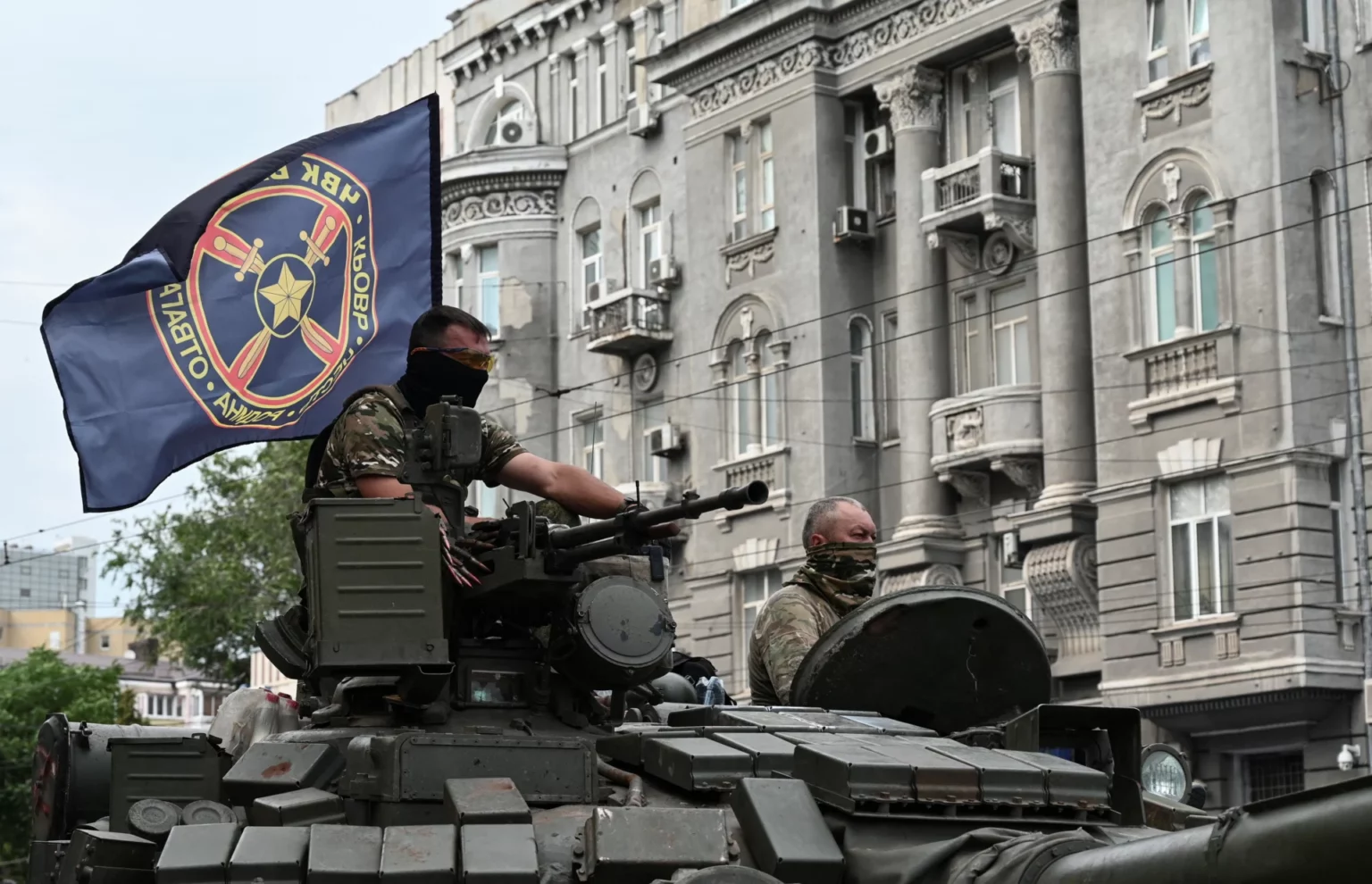The Wagner Group’s private army’s brief uprising last month that questioned the Kremlin’s authority has led to the completion of the surrender of the private army’s weapons to the Russian military, the Defence Ministry announced on Wednesday.

The weaponary surrender of Wagner Group shows Russia’s efforts to neutralize the threat it posed and seems to be the end of operations of the mercenary group in Ukraine.
This act of surrender takes place after Wagner’s leader Yevgeny Prigozhin travels to Belarus in order to put an end to the violent rebellion under the terms of the agreement that granted him and his mercenaries amnesty to travel at the first place.
More than 2,000 pieces of equipment which includes tanks, air defense systems, rocket launchers and heavy artillery, along with 2,500 metric tons of ammunition, were among the weaponry turned over, the defense ministry said.
The announcement was made 5 days after the insurgency, on 29th June when Prigozhin and his 34 top officers met with Putin. Wagner’s commanders, according to Kremlin spokesman Dmitry Peskov, swore allegiance to Putin and stated that they were prepared to carry on the war for the Motherland.
The Wagner members could either dismantle the armed group or get into a contract with the Defense Ministry, Putin claimed.
The agreement that put a stop to the uprising came under new scrutiny when Putin met with Prigozhin, who led troops on a march to Moscow to demand the removal of the nation’s top military commanders.
When the uprising first began, Putin branded it a treasonous act and pledged to punish those who took part severely; however, the criminal case against Prigozhin was eventually withdrawn as part of the agreement. However, it appears that the Wagner CEO could still be charged with financial fraud or other offenses.
The accord that put a stop to the mutiny was mediated by Belarusian President Alexander Lukashenko, who revealed last week that his nation provided Wagner field camps but pointed out that the troops of Prigozhin remained at the campus as the leader was in Russia. Their transfer to Belarus, according to Lukashenko, would depend on choices made by Prigozhin and the Russian authorities.
Prigozhin’s mercenaries surged through Rostov-on-Don in southern Russia during the insurrection, which lasted less than 24 hours, and captured the military headquarters there without firing a shot before driving to within around 200 kilometers (125 miles) of Moscow. Wagner was forced to sign contracts with the Defense Ministry by July 1 by the military authorities, who asked that Prigozhin lead a “march of justice” to remove them.

Little resistance was offered to the mutiny, and fighters shot down at least six military helicopters as well as an aircraft used as a command post, killing at least 10 pilots. When a compromise was reached, Prigozhin gave the order for his soldiers to go back to their encampment.
Even though Prigozhin asserted the uprising was not directed at the president but rather intended to force the ouster of Defense Minister Sergei Shoigu and Chief of the Military’s General Staff, Gen. Valery Gerasimov. It nonetheless represented the biggest threat to Putin in his more than two decades in power and severely damaged his authority.
Both males are still employed. According to many analysts, even though Putin wasn’t pleased with their performance, Prigozhin’s demand for their dismissal helped keep them in their positions because doing so would have been viewed as a concession to the Wagner manager.
Gen. Sergei Surovikin, the deputy commander of the Russian army group battling in Ukraine who is rumored to have connections to Prigozhin, is also unknown.
Surovikin hasn’t been seen since the rebellion started, when he posted a video urging an end to it, and two people in Washington familiar with the situation told The Associated Press in June that he has been detained. However, they spoke on the condition of anonymity because they weren’t authorized to discuss it publicly. He has also been detained and questioned, according to several Russian military bloggers.
Surovikin is “resting” and “not currently available,” but Andrei Kartapolov, a retired general who chairs the defense affairs committee in the lower house of the Russian parliament, declined to elaborate.













